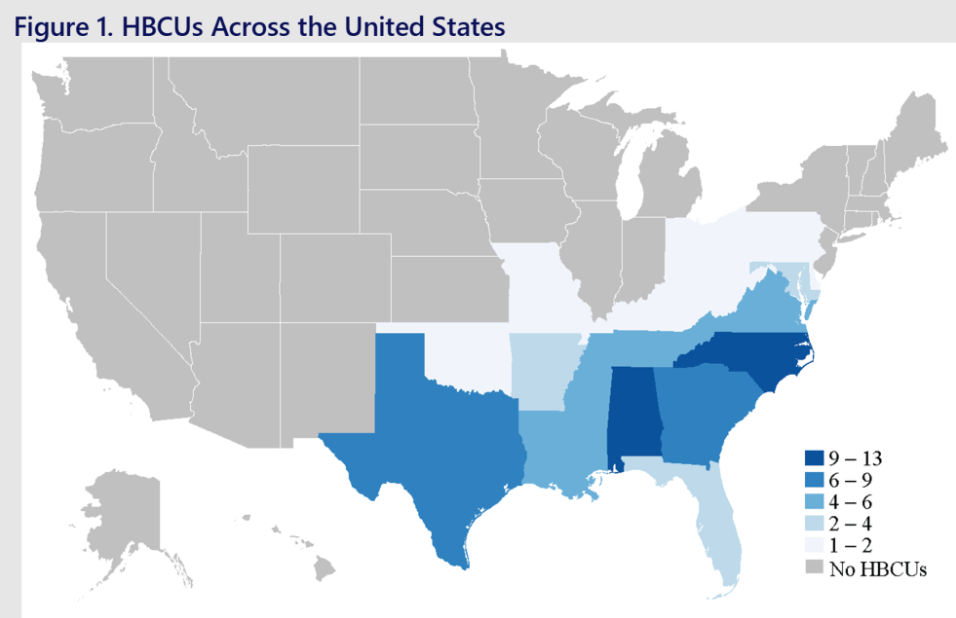Posted by Johann Nacario — May 24, 2024 — The Biden-Harris Administration has announced a new record in federal funding and investments in Historically Black Colleges and Universities (HBCUs) totaling more than $16 billion from Fiscal Years (FY) 2021 through current available data for FY 2024. This new reported total is up from the previously announced over $7 billion, and captures significant additional actions already undertaken.
Included among the investments is funding for facilities-related areas such as enhancing physical infrastructure, campus capacity, digital equipment and operations, and ensuring safe learning environments in the light of recent bomb threats.
 The total of more than $16 billion includes over $11.4 billion between FY 2021 and FY 2023 through Federal grants, contracting awards, and debt relief for HBCUs; over $4 billion between FY 2021 and FY 2023 for HBCU-enrolled students through federal financial aid and educational benefits for veterans; and, so far in FY 2024, over $900 million has been secured for Department of Education programs strengthening HBCUs as institutions. President Biden and Vice President Harris are committed to ensuring whole-of-government investment efforts in HBCUs continue at full momentum through the rest of FY 2024.
The total of more than $16 billion includes over $11.4 billion between FY 2021 and FY 2023 through Federal grants, contracting awards, and debt relief for HBCUs; over $4 billion between FY 2021 and FY 2023 for HBCU-enrolled students through federal financial aid and educational benefits for veterans; and, so far in FY 2024, over $900 million has been secured for Department of Education programs strengthening HBCUs as institutions. President Biden and Vice President Harris are committed to ensuring whole-of-government investment efforts in HBCUs continue at full momentum through the rest of FY 2024.
These historic funding levels demonstrate the Administration’s ongoing commitment to HBCUs, which serve as an engine for upward economic mobility in our country. The Administration is also focused on work to ensure HBCUs have the resources to provide a high-quality postsecondary education.
For more than 180 years, HBCUs have been advancing intergenerational economic mobility for Black families and communities, developing vital academic research, and making the nation more prosperous and equitable. Despite representing only 3% of colleges and universities, HBCUs play an outsized role to support the economic mobility of African Americans, producing 40% of all Black engineers, 50% of all Black teachers, 70% of all Black doctors and dentists, 80% of all Black judges, and the first woman and Black Vice President of the United States.
Overall, HBCUs greatly contribute to the economic success of America, providing college access to twice as many Pell Grant-eligible (low-income) students as non-HBCU institutions. Additionally, social mobility research by the United Negro College Fund finds that HBCUs support nearly five times more students than Ivy League and other top-ranked institutions in facilitating movement from the bottom 40% in U.S. household income to the top 60%.
A recent CEA report further underscores that HBCUs are engines for upward mobility and additionally discusses new research showing that HBCU enrollment has considerable positive effects on bachelor’s degree completion and household income later in life. The report details how these successes have occurred in the context of historic underfunding of HBCUs. It also discusses a recent resurgence in applications to, and enrollment in, HBCUs which highlight the high value that students have placed on these institutions in recent years.
Since Day One, the Biden-Harris Administration has said it is committed to advancing racial equity, economic opportunity, and educational excellence, including by reestablishing the White House Initiative on Advancing Educational Equity, Excellence, and Economic Opportunity through Historically Black Colleges and Universities.
Read the DofED announcement to see the list of historic actions the Biden-Harris Administration has taken to support HBCUs between FY 2021 and into FY 2024.




